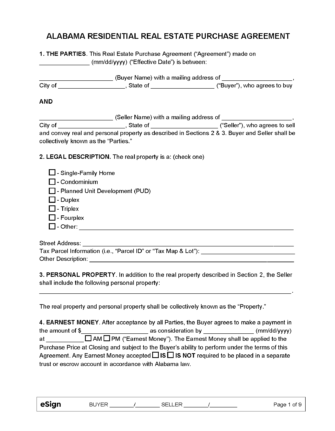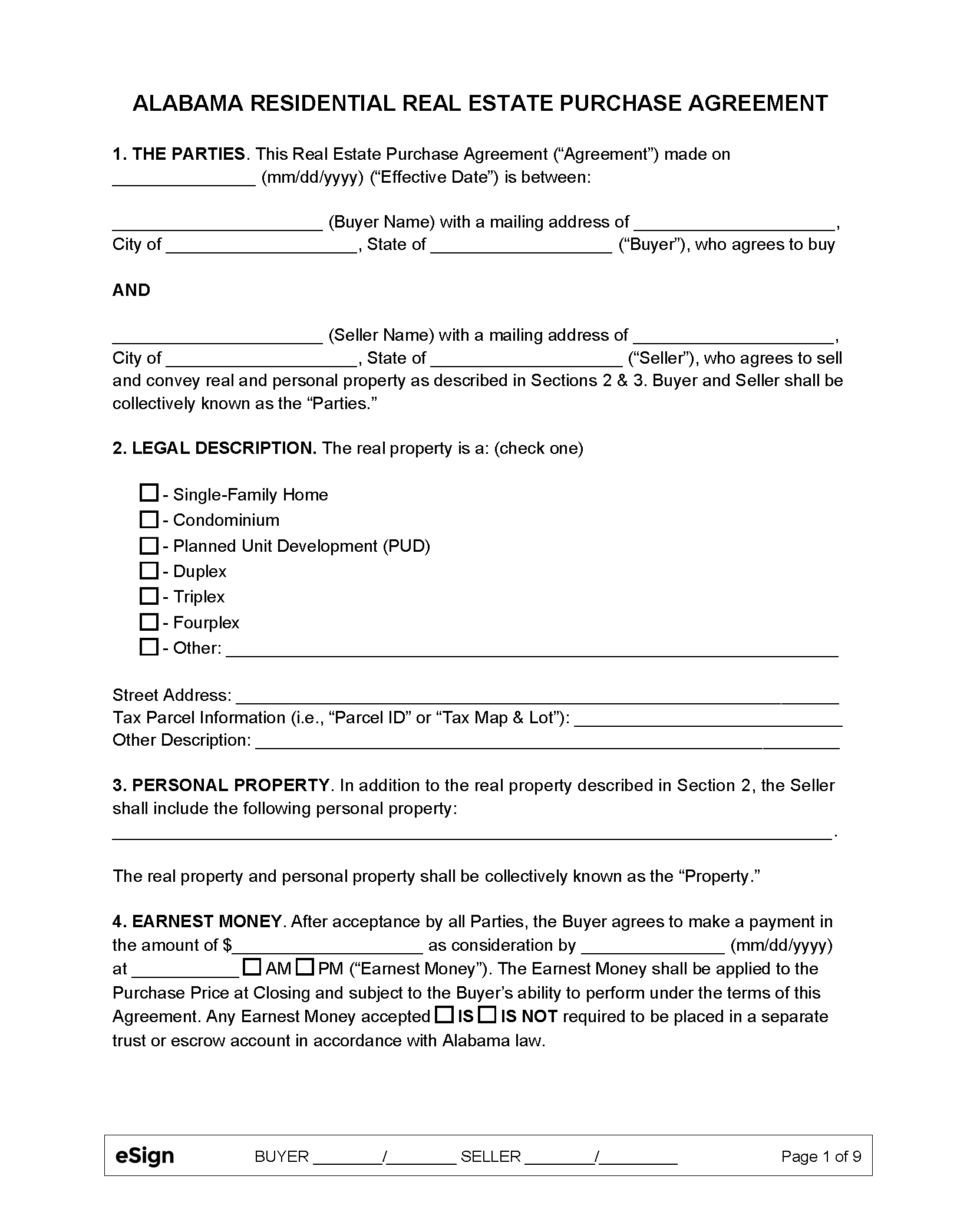Contents |
Realtor Version
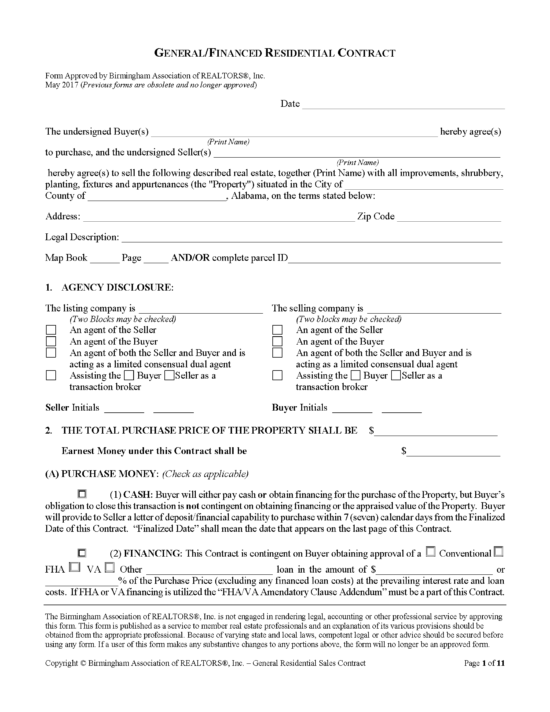
Download: PDF
Required Disclosures (2) |
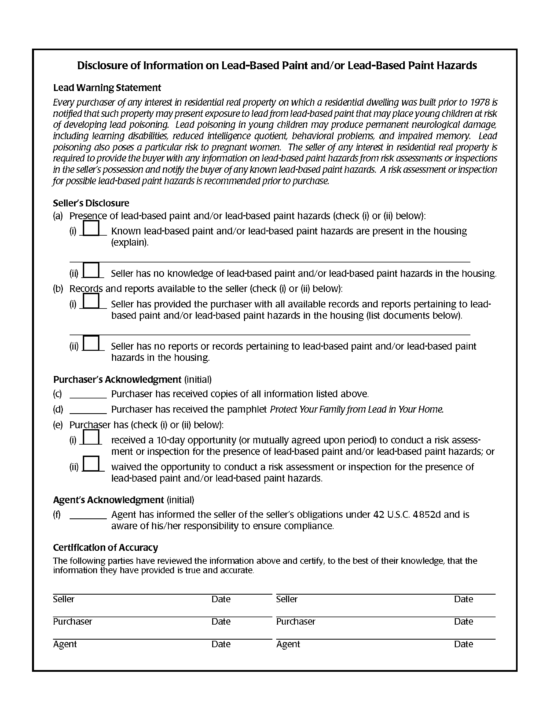 Lead-Based Paint – Federal law requires that individuals selling a home built prior to 1978 must provide an EPA handbook to home buyers, among any other mandated disclosures. Lead-Based Paint – Federal law requires that individuals selling a home built prior to 1978 must provide an EPA handbook to home buyers, among any other mandated disclosures.
Download: PDF |
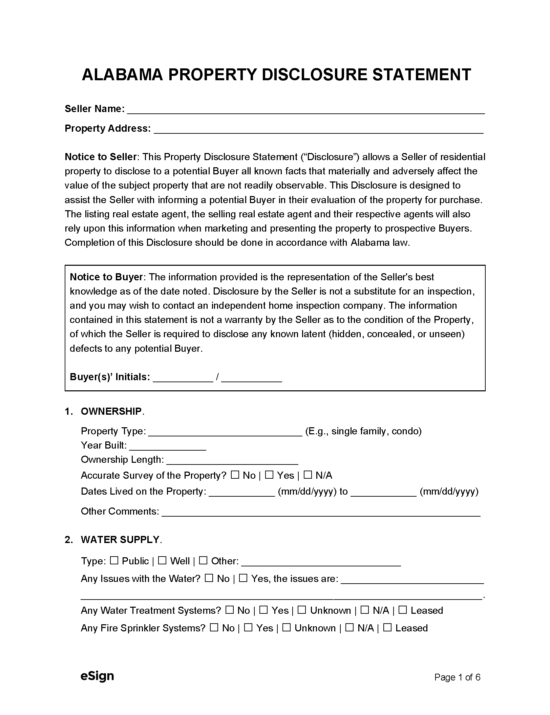 Property Disclosure Statement (Optional) – This disclosure statement provides the buyer with a general overview of the property, including any outstanding issues that could impact the safety or value of the real estate. Property Disclosure Statement (Optional) – This disclosure statement provides the buyer with a general overview of the property, including any outstanding issues that could impact the safety or value of the real estate.
Download: PDF |
Buyer Beware
Statute: § 6-9-142
Alabama is one of the few states that use a rule known as “caveat emptor,” which translates to “let the buyer beware.” This means that it is the responsibility of the buyer to discover any issues with the property. In other words, the seller is not legally required to disclose defects on the property. With that said, there are three (3) exceptions to this rule, which are:
- The seller is required to disclose matters if the buyer specifically references them (the seller can’t purposely lie when asked a question);
- If there is an issue with the property that could jeopardize the health of the buyer, the seller is required to inform them; and
- If a fiduciary relationship exists between the buyer and seller, the seller is required to make any and all possible disclosures.
